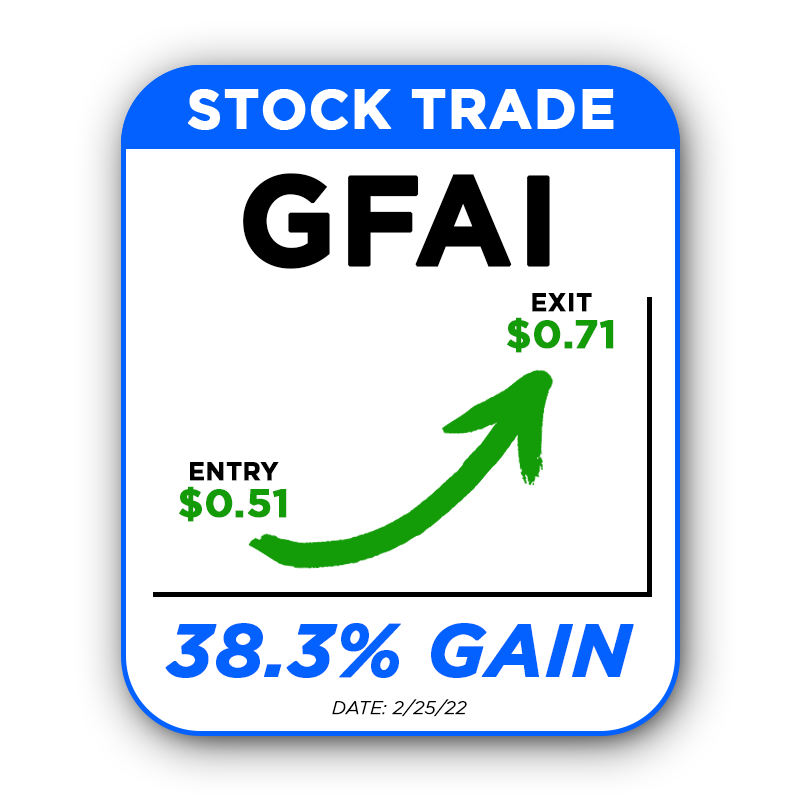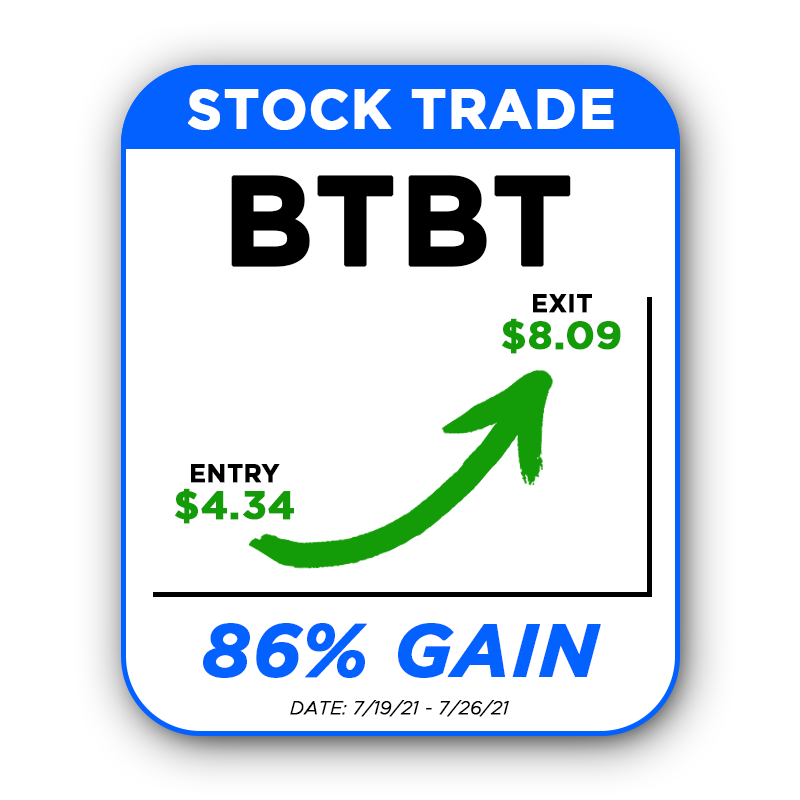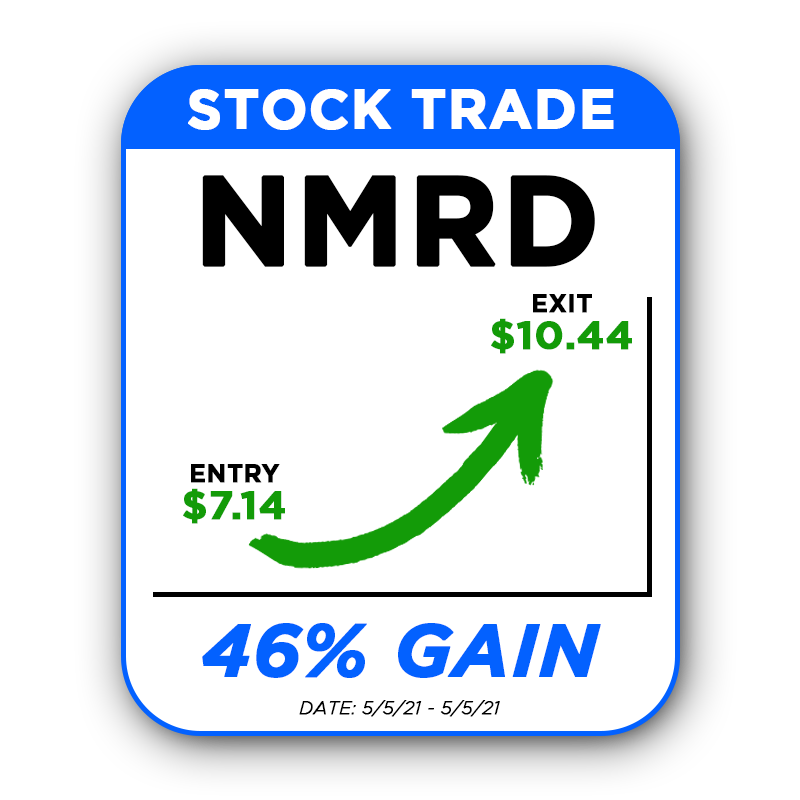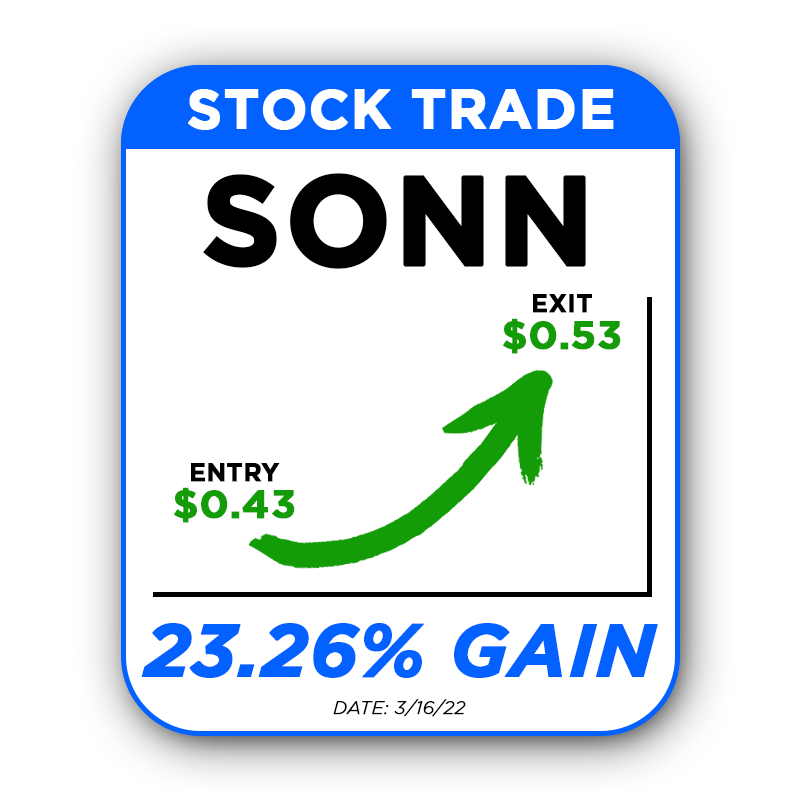Terms & Conditions
Last Updated: July 06, 2021
Previous version
PLEASE READ THESE TERMS CAREFULLY! IMPORTANT NOTICE FOR RESIDENTS IN NORTH AMERICA ONLY: YOU AND THE COMPANY AGREE THAT ANY FUTURE DISPUTES BETWEEN YOU AND THE COMPANY WILL BE RESOLVED BY BINDING, INDIVIDUAL ARBITRATION, UNLESS YOU OPT-OUT IN ACCORDANCE WITH SECTION 14.
These Terms of Service (“Terms” or “Agreement”) apply when you access, use or visit RagingBull.com (the “Site”) or any newsletters, publications, chatrooms, live sessions, seminars, webinars, video presentations, social media postings, applications, email communications, research reports, or any other educational and informative products, content, digital subscriptions, or features made available on the Site, or on the websites and mobile applications owned and operated by us or our affiliates that link to these Terms (the Site and these services, content and applications collectively constituting, the “Services”). The Services are provided to you by RagingBull.com LLC or its affiliates (referred to in these Terms collectively as “the Company,” “we,” “us” and “our”). We prepared these Terms to help explain the terms that apply to your use of the Services.
Please read these Terms carefully, as they constitute a legally binding contract that applies to your use of the Services. BY USING THE SERVICES, YOU EXPRESSLY UNDERSTAND, ACKNOWLEDGE AND AGREE TO COMPLY WITH THESE TERMS. If at any time you do not
accept the terms and conditions set forth in these Terms, you must immediately stop using the Service.
Table of Contents
1. CHANGES
We may change, modify or amend these Terms from time to time. If we make a material change to these Terms we may provide notice to you to the email address we have on file or using “just in time” disclosures on the Services. By continuing to use the Services after those changes become effective, you agree to be bound by the revised Terms. To find out when we last updated this Agreement, please refer to the date listed after “Last Updated” at the top of this Agreement.
You understand that we are always improving and working on our Services, which means our Services may change over time. We may modify, suspend or discontinue any part of the Service, or introduce new features or restrictions on part or all of the Services. We also reserve the right to remove any Content (defined below, in Section 6), features, or pages for any reason, in our sole discretion, and without notice to you. You agree that we are not liable to you or any third party for any modification, suspension or discontinuance of the Services or any part thereof.
2. PRIVACY POLICY
In connection with your use of the Services, please review our Privacy Policy, located at https://ragingbull.com/privacy-policy/ to understand how we use information we collect from you when you access, visit or use the Services. If you reside outside of the European Economic Area, your acceptance of these Terms constitutes your consent to the processing activities described in our Privacy Policy under the laws of your jurisdiction.
3. USE OF SERVICES
3.1 AffirmativeRepresentations Regarding Your Use of the Services.
We publish newsletters and continuing educational materials with a focus on the capital markets and securities trading that are distributed via an electronic/digital delivery system via website or application (“digital subscriptions”). When you use the Services, you represent that: (a) the information you submit to the Services is truthful and accurate; (b) your use of the Services does not violate any applicable law or regulation; and (c) you are of sufficient legal age or otherwise have legal capacity to legally enter into these You must be 18 years or older to use any part of the Services. If you are less than 18 years of age and would like to use, subscribe or register to any part of the Services, please ask your parent or legal guardian to review and agree to these Terms of Service before you use any part of the Services or ask them to complete the purchase and/or registration on your behalf.
3.2 Registration for Subscription Sites.
To have access to certain subscription ormembers-only sections of our Site, you must be or become a member. You agree to provide true, accurate, current, and complete information about yourself as prompted by the applicable registration or log-in form, and you are responsible for keeping such information up to date (this includes your contact information, so that we can reliably contact you). In addition, certain features of the Services may only be available to our registered users. To access those areas of the Services you will be required to log in using your username and password. You are responsible for all activity occurring when the Services are accessed through your account, whether authorized by you or not. Therefore, if you create an account, be sure to protect the confidentiality of your account password. We are not liable for any loss or damage arising from your failure to protect your password or account information. You acknowledge that if any information provided by you is untrue, inaccurate, not current, or incomplete, we reserve the right to terminate this Agreement and your use of the
3.3. Text Messaging
By using the Services, you agree that we and those acting on our behalf may, in certain circumstances, send you text (SMS) messages at the phone number you provide us. These messages may include operational messages about your use of the Services, as well as marketing or other promotional messages. You may opt-out of receiving marketing text messages at any time by texting STOP to any text message from us or sending an email to support@ragingbull.com, indicating that you no longer wish to receive marketing texts along with the phone number of the mobile device receiving the messages. You may continue to receive text messages for a short period while we process your request, and you may also receive text messages confirming the receipt of your opt-out request. Text messages may be sent using an automatic telephone dialing system. Your agreement to receive marketing texts is not a condition of any purchase or use of the Services. If you change or deactivate the phone number you provided to us, you must update your account information to help prevent us from inadvertently communicating with anyone who acquires your old number. Standard data and message rates may apply for SMS and MMS alerts, whether you send or receive such messages. Please contact your mobile network operator for details.
4. PROHIBITED ACTIVITIES
You agree that, in connection with your use of the Services, you will not:
- (i)Use the Service for any unauthorized purpose, including collecting usernames and/or email addresses of other users by electronic or other means for the purpose of sending unsolicited email or other electronic communications, or engaging in unauthorized framing of, or linking to, the Service without our express written consent;
- (ii)Transmit chain letters, bulk or junk email or interfere with, disrupt, or create an undue burden on the Service or the networks or services connected to the Service, including without limitation, hacking into the Service;
- (iii)Impersonate any other person or entity, or invade the privacy, or violate the personal or proprietary rights, of any person or entity;
- (iv)Decompile, disassemble, modify, translate, adapt, reverse engineer, create derivative works from or sublicense the Service, or any portion thereof; or
- (v)Circumvent, disable or otherwise interfere with security related features of the Service or features that prevent or restrict use or copying of any Content (as defined in Section 5) or enforce limitations on use of the Service or the Content on the Service.
- (vi)Use any robot, spider, site search/retrieval application, or other manual or automatic device or process to retrieve, index, “data mine,” or in any way reproduce or circumvent the navigational structure or presentation of the Sites or their contents
5. OUR INTELLECTUAL PROPERTY RIGHTS
5.1 Content.
All content included on the Services such as text, graphics, logos, images, audio clips, videos, data, software, and other material (collectively “Content”) is owned or licensed property of the Company or its licensors, and is protected by copyright, trademark, patent or other proprietary rights. The collection, arrangement and assembly of all Content on the Services is the exclusive property of the Company and its licensors and protected by U.S. and international copyright The Company and its licensors expressly reserve all intellectual property rights in all Content.
5.2 License and Access.
The Company grants you a limited license to access and make personal use of the Service and the Content for NONCOMMERCIAL PURPOSES ONLY and only to the extent such use does not violate these Terms including, without limitation, the prohibitions listed in the “Prohibited Activities” section of these Terms. You may download, print and copy Content for personal, noncommercial purposes only, provided you do not modify or alter the Content in any way, delete or change any copyright or trademark notice, or violate these Terms. You may not distribute any Content to others, whether or not for payment or other consideration, and you may not archive, modify, copy, frame, cache, reproduce, sell, publish, transmit, display or otherwise use any portion of the Content. You may not scrape or otherwise copy our Content without our permission. You agree not to decompile, reverse engineer or disassemble any software or other products or processes accessible through the Site nor to insert any code or product or manipulate the Content or the Site in any way, and not to use any data mining, data gathering or extraction method. Accessing, downloading, printing, posting, storing or otherwise using the Services or any of the Content for any commercial purpose, whether on behalf of yourself or on behalf of any third party, constitutes a material breach of this Agreement.
6. OUR MANAGEMENT OF THE SERVICES; USER MISCONDUCT
6.1 Our Right to Manage the Services.
We reserve the right, but do not undertake the obligation to: (a) monitor or review the Services for violations of this Agreement and for compliance with our policies; (b) report to law enforcement authorities and/or take legal action against anyone who violates these Terms; (c) refuse, restrict access to or the availability of, or remove, delete, edit or disable (to the extent technologically feasible) any Content or any portion thereof; (d) manage the Service in a manner designed to protect our and third parties’ rights and property or to facilitate the proper functioning of the Service; and/or (e) terminate or block you your use of the Service for violating these Terms.
6.2 Our Right to Terminate Users.
WITHOUT LIMITING ANY OTHER PROVISION OF THESE TERMS OR ANY REMEDY WE MAY HAVE UNDER LAW OR IN EQUITY, WE RESERVE THE RIGHT TO, IN OUR SOLE DISCRETION, AND WITHOUT NOTICE OR LIABILITY, DENY ACCESS TO AND USE OF THE SERVICE TO ANY PERSON FOR ANY REASON OR FOR NO REASON AT ALL, INCLUDING WITHOUT LIMITATION FOR BREACH OF ANY REPRESENTATION, WARRANTY OR COVENANT CONTAINED IN THESE TERMS OF SERVICE, OR OF ANY APPLICABLE LAW OR REGULATION.
7. CONTENT YOU SUBMIT
The Services may offer you the opportunity to submit or post information to the Services, and to share information with other users through chat rooms or via social media forums You agree to use common sense and good judgment when conducting or posting any online communication or distribution of information. Any information submitted to the Services or to our social media forums on the internet through any means is “Submitted Content.”
By posting Submitted Content, you expressly represent and warrant the following: (i) you are the owner, with all appurtenant rights thereto, of any and all Submitted Content; or (ii) you are the legitimate and rightful grantee of a worldwide, royalty free, perpetual, irrevocable, sub-licensable, non-exclusive license to use, distribute, reproduce, and distribute Submitted Content. You further represent and warrant that all persons and entities connected with the Submitted Content, and all other persons and entities whose names, voices, photographs, likenesses, works, services, and materials have been used in the Submitted Content or its exploitation, have authorized the use of their names, voices, photographs, likenesses, performances, and biographical data in connection with the advertising, promotion, trade and other exploitation of the Submitted Content and the rights granted herein.
By accessing, viewing and/or posting any Submitted Content to any of our social media forums on the internet, you accept, without limitation or qualification, these Terms, as well as any other terms of use required by the Company that owns and operates the underlying social media site (e.g,, any terms of use required by Facebook, Twitter, etc). If you do not agree to the terms of this Agreement, you may not view or post any content to our social media forums on the internet. Your use of our social media forums is acceptance of this Agreement and has the same effect as if you had actually physically signed an agreement.
You are solely responsible for your Submitted Content. We are not a publisher of Submitted Content and we are not responsible for its accuracy or legality. You assume legal responsibility for and will indemnify us from all liabilities, losses, or damages incurred as a result of any of your Submitted Content.
7.1 License to Submitted Content.
By posting Submitted Content to any part of the Services you automatically grant, and you represent and warrant that you have the right to grant to us, an irrevocable, perpetual, non-exclusive, transferable, fully-paid-up, royalty-free, worldwide license (with the right to sublicense at multiple levels) to use, copy, publicly perform, publicly display, reformat, translate, excerpt (in whole or in part), and distribute such Submitted Content for any purpose and in any format on or in connection with the Services, our business, or the promotion thereof, to prepare derivative works of, or incorporate such Submitted Content into other works, and to grant and authorize sublicenses of the foregoing. Additionally, by providing Submitted Content, you authorize us to use the names, voices, photographs, likenesses, performances, and biographical data included in or associated with any Submitted Content in connection with the advertising, promotion, trade and other exploitation of the Submitted Content and the rights granted herein. You acknowledge that we may retain archived copies of your Submitted Content and may continue to use your Submitted Content in connection with any materials that were created prior to your removal of your Submitted Content, in accordance with the license described above.
7.2 Rules Regarding Submitting Content
By using our Services, you agree not to post any Submitted Content that you know is incorrect or not current. You further agree not to post Submitted Content or take any action that creates liability for us in any manner whatsoever; violates or possibly causes us to violate any applicable law, statute, ordinance or regulation or encourages criminal conduct; scans or tests the vulnerability or security of our Services or the system within which it operates or involves the upload, or insertion of, any programming language or code into or onto, our Services; contains any information (such as insider, proprietary or confidential information) that you do not have a right to make available due to contract, fiduciary duty, or operation of law; advertises the products or services of others or contains links to third-party web sites or solicits business for products or services other than those that are offered and promoted on the Services; contains any computer hardware or software, viruses, Trojan horses, worms, spyware, or any other computer programming that may interfere with the operation of our Services or our systems and or create or impose a large burden or load on our Services or systems; or that infringes any third party’s intellectual property rights including but not limited to copyright, patent or trademark right.
We reserve the right, but do not have the obligation to monitor, remove, or restrict any Submitted Content for any reason, including, without limitation, that your Submitted Content is in violation of these Terms or is otherwise inappropriate, as determined in our sole discretion. You agree that any action or inaction we take to prevent, restrict, redress, or regulate Submitted Content, or to implement other enforcement measures against any Submitted Content, is undertaken voluntarily and in good faith. We may moderate Submitted Content, conduct, and compliance with these Terms at our discretion, but they do not have any authority to make binding commitments, promises or representations on our behalf. You expressly agree that we shall in no circumstances be liable as a result of any representation that we would or would not restrict or redress any Submitted Content, conduct or potential or purported violation of the Terms.
8. FEEDBACK
You may submit comments, suggestions or ideas about our Services, including ways in which you would improve or change the Services (the “Feedback”). You agree that your Feedback is provided to us on a NON-CONFIDENTIAL BASIS, is voluntary, gratuitous, unsolicited and without restriction, and we do not have any fiduciary duty or other duty as a result of receiving your Feedback. You hereby grant us the unlimited, perpetual right to use, copy, modify, publish, redistribute, create derivative works from such Feedback or otherwise disseminate your Feedback for any purpose and in any way without compensation or any obligation to you or any other third parties. We do not waive any rights to use similar or related feedback or ideas known to us, developed by our employees, or obtained from other sources.
9. SUBSCRIPTIONS
You are not required to purchase anything for certain limited use of the Site. However, if you do not purchase a subscription or product, your access to the content and services will be limited. We reserve the right to modify the content, type and availability of any of these digital subscriptions.
9.1. Fees and Payments.
We reserve the right at any time to charge fees for access to portions of the Services. In no event, however, will you be charged for access to the Services unless we obtain your prior agreement to pay such charges. If at any time we require a fee for portions of the Services that are now free, we will give you advance notice of such fees. All new fees, if any, will be posted prominently on the Site and in other appropriate locations on the Services. Our fees may vary depending on the Services you purchase.
One-Time Purchase. When you make a one-time purchase, such as for a standalone product, we will charge or debit your payment method at the time of purchase.
Digital Subscription. We will charge or debit your payment method at the beginning of your subscription. Billing will continue according to the cycle stated at the time of your order. All of our digital subscriptions are renewed automatically until terminated. When we renew your subscription, we will use the payment method currently associated with your account.
Payment Information. You shall pay all fees and charges incurred through your account at the rates in effect for the billing period in which such fees and charges are incurred, including, but not limited to charges for any digital subscriptions or services offered for sale through the Services by us or by any other vendor or service provider. All fees and charges shall be billed to and paid for by you. We may change the fees in effect but will give you advance notice of these changes via a message to the email address associated with your account.
Sales Tax. All fees are exclusive of taxes, which we will charge as applicable. You agree pay all applicable taxes relating to your use of the Services. Applicable taxes may vary. We are not able to notify you in advance of changes in applicable taxes. You shall have no liability for any taxes based upon our gross revenues or net income.
All prices are in United States dollars, unless otherwise stated. You remain responsible for any uncollected amounts. If a payment is not successfully settled, due to expiration, insufficient funds, or otherwise, we may suspend your access to the service until we have successfully charged a valid payment method.
When you use your product or service, you may incur other additional charges from third party service providers, such as telecommunications fees, data fees or service provider fees. You are responsible for paying any additional charges.
9.2 Purchases.
If you wish to purchase any products or services made availablethrough the Services (“Purchase”), you may be asked to supply certain information relevant to your Purchase including, without limitation, your credit card number, the expiration date of your credit card, your billing address, and your shipping information. We may require additional information from you prior to accepting or processing your order.
You represent and warrant that: (i) you have the legal right to use any credit card(s) or other payment method(s) in connection with any Purchase; and that (ii) the information you supply to us is true, correct and complete. By submitting such information, you grant us the right to use or provide the information to third parties for purposes of facilitating the completion of Purchases or providing our Services to you.
We reserve the right to refuse or cancel your order at any time for certain reasons including but not limited to: product or service availability; we suspect you are purchasing products for resale without written permission from us; errors in the description or price of the product or service; error in your order or other reasons; or if fraud or an unauthorized or illegal transaction is suspected. Furthermore, we reserve the right to collect any rejection or insufficient funds fee and to process any such payment by the payment method you have submitted to us. Your charges may be payable in advance, in arrears, or as otherwise described when you initially selected to use the paid Services.
9.3 Promotions.
We may occasionally offer promotions. The specific terms of each promotion are stated at the time the promotion is offered. Each promotion may be different. Promotions cannot be combined. You are required to provide your payment details when you sign up for a promotion. At the end of the promotion, your subscription will automatically renew at the rates displayed at the time of purchase. We will not notify you in advance that the promotion is about to end, and we will not notify you when your promotional rate has ended. To cancel and avoid being charged, you must notify us 48 hours before the promotion ends. Certain promotions may not permit cancellation during the promotional period. You agree to the cancellation and refund terms stated at the time of purchase.
10. REFUND & CANCELLATION
We want you to be happy with your service from RagingBull, and we created this information to provide clarity about refunds, auto-renewal and cancellations to help you make an informed choice. Rather than type out our full company name every time, we’ve referred to RagingBull.com, LLC and its affiliates collectively as “we” or “us” throughout this policy. Our refund policy is also located in our Terms of Service [Terms of Service].
Unless otherwise permitted by the specific terms of the service or product purchased, all RagingBull.com products and services and single-issue purchases of digital material are not refundable unless you cannot access the material or service. If a service or product does not have a refund policy, the product or subscription allows transfer of credit toward another service. If within 30 days of purchase, you decide the service isn’t for you, simply give our VIP Concierge team a call at (800) 380-7072 within the first 30 days, and a friendly member of our team will assist you in transferring your credit towards other RagingBull Service(s).
At any time, if the service to which you originally subscribed has been modified, updated or discontinued, then we may, at our discretion, notify you to offer to transition you into a similar service of equal or greater value or, if you choose, we can issue you a credit towards a future service.
Subscriptions. You can cancel your auto-renewal for your subscription-based service at any time, and you will continue to have access to your subscription or a substantially similar subscription through the end of your subscription term. We do not provide refunds or credits for any partial subscription term.
To cancel your auto-renewal for your subscription-based service, you can click the “Cancel Subscription” button on your member dashboard. You can also cancel your auto-renewal by contacting the Company by telephone at (800) 380-7072 or via email at Support@RagingBull.com. We must receive your request to cancel your subscription-based service at least forty-eight (48) hours before the next subscription term to avoid further charges. Before each renewal, we will send a reminder with the term and rate then in effect to the email account associated with your account no later than five (5) business days before your subscription expires. If you do nothing, we will charge the payment method you selected.
Unless you cancel auto-renewal for your subscription, the subscription-based service will be automatically extended for successive renewal period of the same duration as the subscription term originally selected, at the then-current non-promotional rate.
We are unable to grant a refund to any subscriber who has contravened any of our Terms of Service. The refund portion of the Terms of Service can be found here [Terms of Service].
If you have any questions regarding this policy or would like further clarification please feel free to contact us.
11. INTENDED USE AND RELIABILITY OF SERVICES
Our Services may be suspended temporarily or permanently without notice to you for various reasons including but not limited to for security purposes, maintenance or repair, system failures, extenuating personal and business circumstances, natural disasters, other conditions beyond our control or other similar circumstances (collectively, “Service Interruptions”). You acknowledge and agree that you are not entitled to any compensations related to such Service Interruptions. We do not offer a service level or uptime guarantee with our Services.
You may also experience interruptions or issues in accessing our Services for various reasons, including a poor Wi-Fi connection or your mobile carrier’s data and usage plan. You acknowledge that the availability of our Services is dependent on your Internet Service Provider (“ISP”), your mobile carrier, and your mobile device. You are responsible for ensuring you comply with your ISP’s and mobile carrier’s applicable terms and agreements, including any data and usage terms.
12. THIRD PARTY SITES
The Services may contain links or access to third-party web sites or services that are not owned or controlled by us (“Third Party Services”). A description or link to Third Party Services does not imply our endorsement of the Third-Party Services.
We have no control over, and assume no responsibility for, the content, privacy policies, or practices of any Third-Party Services. You further acknowledge and agree we shall not be responsible or liable, directly or indirectly, for any damage or loss caused or alleged to be caused by or in connection with use of or reliance on any such content, goods or services available on or through any such Third-Party Services.
You may be required to agree to additional Third-Party Services ns and conditions, warranties, or other policies. We strongly advise you to read the terms and conditions and privacy policies of any Third-Party Services that you access or use.
THESE TERMS OF SERVICE DO NOT APPLY TO THIRD PARTY SITES. BEFORE VISITING A THIRD-PARTY SITE THROUGH LINKS OR OTHER MEANS PROVIDED ON OR THROUGH THE SERVICE, YOU SHOULD REVIEW THE THIRD-PARTY SITE’S TERMS AND CONDITIONS AND PRIVACY POLICY, AND INFORM YOURSELF OF THE REGULATIONS, POLICIES AND PRACTICES OF THESE THIRD-PARTY SITES.
13. CONTESTS, SWEEPSTAKES AND PROMOTIONS
Any contests, sweepstakes or other promotions (collectively, “Promotions”) made available through the Services may be governed by rules that are separate from this Agreement. If you participate in any Promotions, please review the applicable rules as well as our Privacy Policy. If the rules for a Promotion conflict with these Terms, the Promotion rules shall apply.
14. LEGAL DISPUTES AND ARBITRATION AGREEMENT
14.1 Initial Dispute Resolution.
We are available by email at support@ragingbull.com to address any concerns you may have regarding your use of the Services. Most concerns may be quickly resolved in this manner. Each of you and we agree to use best efforts to settle any dispute, claim, question, or disagreement directly through consultation and good faith negotiations which shall be a precondition to either party initiating a lawsuit or arbitration.
14.2 Agreement to Binding Arbitration.
If we do not reach an agreed upon solution within a period of sixty (60) days from the time informal dispute resolution is pursued pursuant to Section 14.1 above, then either party may initiate binding arbitration. All claims arising out of or relating to these Terms (including their formation, performance and breach), the parties’ relationship with each other and/or your use of the Service shall be finally settled by binding arbitration administered by JAMS, in accordance with the JAMS Streamlined Arbitration Rules and Procedures, excluding any rules or procedures governing or permitting class actions. Each party will have the right to use legal counsel in connection with arbitration at its own expense. The parties shall select a single neutral arbitrator in accordance with the JAMS Streamlined Arbitration Rules and Procedures. The arbitrator, and not any federal, state or local court or agency, shall have exclusive authority to resolve all disputes arising out of or relating to the interpretation, applicability, enforceability or formation of these Terms, including, but not limited to, any claim that all or any part of these Terms is void or voidable. You or we may elect to appear at the arbitration by phone or, if you and we both agree, to conduct it online, in lieu of appearing live. The arbitrator shall be empowered to grant whatever relief would be available in a court under law or in equity. The arbitrator’s award shall be in writing and provide a statement of the essential findings and conclusions, shall be binding on the parties and may be entered as a judgment in any court of competent jurisdiction. The interpretation and enforcement of these Terms shall be subject to the Federal Arbitration Act. This arbitration agreement will survive the termination of your relationship with us.
The JAMS rules governing the arbitration may be accessed at https://www.jamsadr.com/adr-rules-procedures. If you initiate arbitration, to the extent the filing fee for the arbitration exceeds Two Hundred and Fifty U.S. Dollars ($250.00), we will pay the additional cost. If we are required to pay the additional cost of the filing fees, you should submit a request for payment of fees to JAMS along with your form for initiating the arbitration, and we will decide to pay all necessary fees directly to JAMS. We will also be responsible for paying all other arbitration costs arising in connection with the arbitration, other than costs incurred by you for legal counsel, travel and other out-of-pocket costs and expenses not constituting fees or amounts payable to JAMS.
The parties understand that, absent this mandatory provision, they would have the right to sue in court and have a jury trial. They further understand that the right to discovery may be more limited in arbitration than in court.
14.3 Class Action and Class Arbitration Waiver.
You and we each further agree that any arbitration shall be conducted in our respective individual capacities only and not as a class action or other representative action, and you and we each expressly waive our respective right to file a class action or seek relief on a class basis. If any court or arbitrator determines that the class action waiver set forth in this paragraph is void or unenforceable for any reason or that an arbitration can proceed on a class basis, then the arbitration provision set forth above in Section 9152 shall be deemed null and void in its entirety and the parties shall be deemed to have not agreed to arbitrate disputes.
14.4 Waiver of Jury Trial.
You and we WAIVE ANY CONSTITUTIONAL AND STATUTORY RIGHTS TO GO TO COURT AND HAVE A TRIAL IN FRONT OF A JUDGE OR A JURY. The parties are instead electing to have claims and disputes resolved by arbitration. Arbitration procedures are typically more limited, more efficient, and less costly than rules applicable in court and are subject to very limited review by a court. In any litigation between you and us over whether to vacate or enforce an arbitration award, you and we WAIVE ALL RIGHTS TO A JURY TRIAL and elect instead to have the dispute be resolved by a judge.
14.5 Payment of Attorney’s Fees.
Notwithstanding the parties’ agreement to resolve all disputes through arbitration if any party hereto shall commence legal proceedings against the other party, the prevailing party in any such proceeding shall be entitled to recover from the non-prevailing party its cost of suit, including reasonable attorney’s fees, as may be fixed by the court.
14.5 Exception – Small Claims Court Claims.
As an exception to the parties’ agreement to resolve all disputes through arbitration, either party may seek relief in a small claims court for disputes or claims within the scope of that court’s jurisdiction.
14.6 Exception – California Private Attorneys General Act (PAGA) Action.
Notwithstanding the parties’ agreement to resolve all disputes through arbitration, either party may seek relief in a court of law for a claim arising under California’s Private Attorneys General Act.
14.7 30 Day Right to Opt-Out.
You have the right to opt-out and not be bound by the arbitration and class action waiver provisions set forth in Sections 14.2 and 14.3 by sending written notice of your decision to opt-out by emailing us at legal@ragingbull.com. The notice must be sent within thirty (30) days of accepting these Terms, otherwise you shall be bound to arbitrate disputes in accordance with the terms of those sections. If you opt-out of these arbitration provisions, we also will not be bound by them.
14.8 Exclusive Venue for Litigation.
To the extent that the arbitration provisions set forth in Section 14.2 do not apply, of if you want to pursue any legal remedies to which you would otherwise be entitled but that are not available to you pursuant to this Section 14, the parties agree that any litigation between them shall be filed exclusively in state or federal courts located in New Hampshire (except for small claims court actions which may be brought in the county where you reside). The parties expressly consent to exclusive jurisdiction in the State of New Hampshire for any litigation other than small claims court actions. In the event of litigation relating to these Terms or the Services, the parties agree to waive, to the maximum extent permitted by law, any right to a jury trial.
14.9 Applicable Law.
You agree that federal laws and the laws of the State of Delaware, without regard to principles of conflict of laws, will govern these Terms and any claim or dispute that has arisen or may arise between you and the Company.
15. WARRANTY DISCLAIMER; LIMITATION ON LIABILITY
15.1 Disclaimer of Warranties
(A) TO THE EXTENT PERMITTED BY APPLICABLE LAW, THE SERVICE, THE CONTENT, AND ANY OTHER MATERIALS OR ITEMS PROVIDED THROUGH THE SERVICE ARE PROVIDED “AS IS” AND “AS AVAILABLE,” WITHOUT WARRANTY OR CONDITIONS OF ANY KIND. BY OPERATING THE SERVICE, WE DO NOT REPRESENT OR IMPLY THAT WE ENDORSE ANY OF THE CONTENT, MATERIALS OR ITEMS AVAILABLE ON OR LINKED TO BY THE SERVICE, INCLUDING WITHOUT LIMITATION, CONTENT HOSTED ON THIRD PARTY SITES, OR THAT WE BELIEVE THE CONTENT OR ANY OTHER MATERIALS OR ITEMS TO BE ACCURATE, USEFUL OR NON-HARMFUL. WE CANNOT GUARANTEE AND DO NOT PROMISE ANY SPECIFIC RESULTS FROM USE OF THE SERVICES. NO ADVICE OR INFORMATION, WHETHER ORAL OR WRITTEN, OBTAINED BY YOU FROM US SHALL CREATE ANY WARRANTY NOT EXPRESSLY STATED IN THESE TERMS OF SERVICE. YOU AGREE THAT YOUR USE OF THE SERVICES WILL BE AT YOUR SOLE RISK. TO THE FULLEST EXTENT PERMITTED BY LAW, WE AND EACH OF OUR AFFILIATES, ADVERTISERS, LICENSORS, SUPPLIERS, OFFICERS, DIRECTORS, EMPLOYEES, AGENTS, SERVICE PROVIDERS AND OTHER CONTRACTORS DISCLAIM ALL WARRANTIES, EXPRESS OR IMPLIED, IN CONNECTION WITH THE SERVICE AND YOUR USE THEREOF.
(B) TO THE EXTENT PERMITTED BY APPLICABLE LAW, WE MAKE NO WARRANTIES OR REPRESENTATIONS ABOUT THE ACCURACY, RELIABILITY, TIMELINESS OR COMPLETENESS OF THE SERVICE, THE CONTENT, OR ANY OTHER MATERIALS OR ITEMS ON THE SERVICE OR LINKED TO BY THE SERVICES. WE ASSUME NO LIABILITY OR RESPONSIBILITY FOR ANY (I) ERRORS, MISTAKES OR INACCURACIES OF THE CONTENT, MATERIAL OR ITEMS (FOR CLARITY, ON OR OFF THE SERVICES), (II) PERSONAL INJURY, PROPERTY DAMAGE OR INVESTMENT LOSSES OF ANY NATURE WHATSOEVER, RESULTING FROM YOUR ACCESS TO AND USE OF THE SERVICES, (III) ANY UNAUTHORIZED ACCESS TO OR USE OF OUR SECURE SERVERS AND/OR ANY AND ALL PERSONAL INFORMATION STORED ON OUR SERVICES, (IV) ANY INTERRUPTION OR CESSATION OF TRANSMISSION TO OR FROM THE SERVICES, (V) ANY BUGS, VIRUSES, TROJAN HORSES, OR THE LIKE, WHICH MAY BE TRANSMITTED TO OR THROUGH THE SERVICE BY ANY THIRD PARTY, AND/OR (VI) ANY ERRORS OR OMISSIONS IN ANY OF THE CONTENT, MATERIALS OR ITEMS OR FOR ANY LOSS OR DAMAGE OF ANY KIND INCURRED AS A RESULT OF THE USE OF ANY OF THE CONTENT, MATERIALS OR ITEMS) POSTED, TRANSMITTED, OR OTHERWISE MADE AVAILABLE THROUGH THE SERVICE.
15.2 Limited Liability
TO THE EXTENT PERMITTED BY APPLICABLE LAW, IN NO EVENT SHALL WE BE LIABLE TO YOU OR ANY THIRD PARTY FOR ANY INDIRECT, CONSEQUENTIAL, INCIDENTAL, SPECIAL OR PUNITIVE DAMAGES, INCLUDING LOST PROFIT DAMAGES ARISING FROM YOUR USE OF THE SERVICE, THE CONTENT OR ANY OTHER MATERIALS OR ITEMS ON THE SERVICE. NOTWITHSTANDING ANYTHING TO THE CONTRARY CONTAINED IN THESE TERMS OF SERVICE, OUR LIABILITY TO YOU IN RESPECT OF ANY LOSS OR DAMAGE SUFFERED BY YOU AND ARISING OUT OF OR IN CONNECTION WITH THESE TERMS OF SERVICE, WHETHER IN CONTRACT, TORT OR FOR BREACH OF STATUTORY DUTY OR IN ANY OTHER WAY SHALL NOT EXCEED $100.00 OR THE AMOUNT PAID BY YOU TO USE OUR SERVICES IN THE SIX MONTHS PRECEDING THE CLAIM.
16. INDEMNIFICATION
To the extent permitted under applicable law, you will indemnify and hold us and our affiliates and each of our and their respective licensors, suppliers, officers, directors, investors, employees, agents, service providers and other contractors harmless from any claim or demand including, without limitation, reasonable legal fees, made by any third party arising out of or in connection with your use of the Services or any content or information available through the Services, or any violation of this Agreement and/or our Privacy Policy and/or the terms and conditions that are applicable to your use of Third Party Sites.
17. NOTICE TO NEW JERSEY USERS
Notwithstanding any terms set forth in this Agreement, if any of the provisions set forth in Sections 14, 15, or 16 are held unenforceable, void or inapplicable under New Jersey law, then any applicable provision shall not apply to you, but the rest of the terms shall remain binding on you and the Company. In addition, for New Jersey residents, the limitation on liability is inapplicable where attorneys’ fees, court costs, or other damages are mandated by statute. Notwithstanding any provision in these Terms, nothing in these Terms is intended to, nor shall it be deemed or construed to, limit any rights available to you under the Truth-in-Consumer Contract, Warranty and Notice Act.
18. NOTICE TO CALIFORNIA USERS
Under California Civil Code Section 1789.3, users located in California are entitled to the following consumer rights notice: If a user has a question or complaint regarding the Services, please send an email to legal@ragingbull.com. California residents may reach the Complaint Assistance Unit of the Division of Consumer Services of the California Department of Consumer Affairs by mail at 1625 North Market Blvd., Suite N 112, Sacramento, CA 95834, or by telephone at +1 (916) 445-1254 or +1 (800) 952-5210.
19. CLAIMS OF COPYRIGHT INFRINGEMENT — DMCA NOTICE
We take claims of copyright infringement seriously and will respond to notices of alleged copyright infringement that comply with applicable law. In accordance with the Online Copyright Infringement Liability Limitation Act of the Digital Millennium Copyright Act (17 U.S.C. § 512) (“DMCA”), we will respond expeditiously to claims of copyright infringement committed using our Services. If you believe any materials accessible on or from the Services infringes your copyright, you may request removal of those materials from the Services by submitting written notification to our Copyright Agent (designated below).
If you are a copyright owner, authorized to act on behalf of one, or authorized to act under any exclusive right under copyright, please report alleged copyright infringements taking place on or through the Site by submitting a written notice (the “DMCA Notice”) to us with the following information:
- Your physical or electronic signature.
- Identificationof the copyrighted work you believe to have been infringed or, if the claim involves multiple works on the Service, a representative list of such works.
- Identificationof the material you believe to be infringing in a sufficiently precise manner to allow us to locate that material.
- Adequateinformation by which we can contact you (including your name, postal address, telephone number and, if available, email address).
- Astatement that you have a good faith belief that use of the copyrighted material is not authorized by the copyright owner, its agent or the law.
- A statement that the information in the written notice is accurate.
- A statement, under penalty of perjury, that you are authorized to act on behalf of the copyright owner.
Completed notices should be sent by email to: legal@ragingbull.com. Upon receipt of Notice as described below, we will take whatever action, in our sole discretion, we deem appropriate, including removal of the challenged content from the Site.
If you fail to comply with all of the requirements of Section 512(c)(3) of the DMCA, your DMCA Notice may not be effective. Please be aware that if you knowingly materially misrepresent that material or activity on the Services is infringing your copyright, you may be held liable for damages (including costs and attorneys’ fees) under Section 512(f) of the DMCA.
20. GENERAL PROVISIONS
20.1 Independent Contractors.
Nothing in these Terms shall be deemed to createan agency, partnership, joint venture, employer-employee or franchisor-franchisee relationship of any kind between us and any
20.2 Non-Waiver.
Our failure to exercise or enforce any right or provision of these Terms shall not operate as a waiver of the applicable right or
20.3 Severability.
These Terms operate to the fullest extent permissible by law. Ifany provision or part of a provision of these Terms is unlawful, void, or unenforceable, that provision or part of the provision is deemed severable from these Terms and shall not affect the validity and enforceability of any remaining provisions.
20.4 Assignment
We may assign our rights under these Terms without your approval and with or without notice to you.
20.5 Entire Agreement.
These Terms reflect the entire agreement between the parties related to the subject matter hereof and supersede all prior agreements, representations, statements and understandings of the
21. DISCLAIMERS
The following disclaimers apply when you access, use or visit any newsletters, publications, chatrooms, live sessions, seminars, webinars, video presentations, social media postings, applications, email communications, research reports, or any other educational and informative products, content, digital subscriptions, or features made available on the Site or Services.
21.1 RAGINGBULL IS NOT AN INVESTMENT ADVISOR OR REGISTERED BROKER; SALES COMMISSIONS.
Neither RagingBull nor any of its owners or employees is registered as a securities broker-dealer, broker, investment advisor (IA), or IA representative with the U.S. Securities and Exchange Commission, any state securities regulatory authority, or any self-regulatory organization. Employees and Owners of RagingBull.com, LLC are paid in whole or in part by commission based on their sales of Services to subscribers.
21.2 The Services Are For Educational and Information Purposes Only; Not Personalized Investment Advice.
The Services or any communications made in connection with such Services are not, and should not be construed to be, personalized investment advice directed to or appropriate for any particular user or subscriber of our Services. Likewise, the Services or any communications made in connection with them should not be relied upon for purposes of making transactions in securities or holding any position in securities, nor should they be construed as an offer or solicitation to sell or buy any security. We cannot and do not assess, verify or guarantee the suitability or profitability of any particular investment.
RagingBull.com, LLC specifically disclaims any and all liability or loss arising out of any action taken in reliance on the Services, including but not limited to market value or other loss on the sale or purchase of any company, property, product, service, security, instrument or any other matter.
21.3 Use of Testimonials and Endorsements – Experiences Not Typical and Generally Expected Results Are Not Known.
RagingBull.com, LLC utilizes select unsolicited, unpaid testimonials depicting profitability that are believed to be true based on the representations of the persons voluntarily providing the testimonial. However, trading results have NOT BEEN VERIFIED and WE HAVE NO BASIS FOR BELIEVING THAT THE INDIVIDUAL EXPERIENCES DEPICTED ARE TYPICAL, especially given that trading results will vary widely given a variety of factors such as experience, skill, risk mitigation practices, market dynamics and the amount of capital deployed.
Raging Bull DOES NOT TRACK THE INDIVIDUAL TRADING RESULTS OF SUBSCRIBERS to our Services, and so we are NOT ABLE TO INDICATE OR ESTIMATE WHAT CONSTITUTES GENERALLY EXPECTED RESULTS in relation to subscribers using our Services. It is easy to lose money trading and we recommend educating yourself as much as possible before you even think about trying it.
Raging Bull respects and follows 16 C.F.R. Part 255 and the Federal Trade Commission’s Guides Concerning the Use of Endorsements and Testimonials in Advertising. As noted above, Raging Bull does not track the typical results of our current or past subscribers. As a provider of educational courses, we do not have access to the personal trading accounts or brokerage statements of our customers. Available research data suggests, however, that most day traders are not profitable.
For instance, in a 2019 study http://www.repec.eae.fea.usp.br/documentos/Chague_Losso_Giovannetti_47WP.pdf by Fernando Chague, Rodrigo De-Losso, and Bruno Giovannetti titled “Day Trading for a Living?”, 97% of day traders that traded at least 300 days between 2013 and 2015 in the Brazilian equity futures market (the third largest volume in the world) lost money, 0.4% earned more than $54 per day, and the top individual earned only $310 per day with great risk.
In a research paper https://faculty.haas.berkeley.edu/odean/papers/Day%20Traders/Day%20Trading%20and%20Le arning%20110217.pdf published in 2014 titled “Do Day Traders Rationally Learn About Their Ability?”, professors from the University of California studied 3.7 billion trades from the Taiwan Stock Exchange between 1992-2006 and found that only 9.81% of day trading volume was generated by predictably profitable traders and that these predictably profitable traders constitute less than 3% of all day traders on an average day.
In a 2012 research paper https://faculty.haas.berkeley.edu/odean/papers/Day%20Traders/The%20Cross-Section%20of% 20Speculator%20Skill.pdf titled “The Cross-Section of Speculator Skill: Evidence from Day Trading”, professors from the University of California, Davis, The University of California, Berkeley, and Peking University conclude that “Less than 1% of the total population of day traders is able to predictably and reliably earn positive abnormal returns net of fees”.
The range of results in these studies highlights the difficulty in determining a definitive success rate or even reliable inferences as to what constitutes “generally expected results” to be disclosed in relation to our customers’ testimonials and endorsements. Any statements of success or profitability should NOT be understood as typical.
21.4 Results Presented Are Not Verified or Typical; Actual Results Will Vary.
The Services may contain information regarding the historical trading performance of RagingBull.com, LLC’s owners or employees. Please be aware that past performance is not necessarily indicative of future results, and the results presented in the Services are NOT TYPICAL, AND SHOULD NOT BE UNDERSTOOD AS TYPICAL, OF RAGING BULL SUBSCRIBERS. Actual results will vary widely given a variety of factors such as experience, skill, risk mitigation practices, market dynamics and the amount of capital deployed.
21.5 Substantial Risk Involved; Seek Individual Professional Advice Before Investing.
Any individual who chooses to invest in any securities of the companies mentioned, referred to or profiled in the Services should do so with caution. Investing or transacting in any securities involves substantial risk; you may lose some, all, or possibly more than your original investment. Any subscriber or user of our Services bears responsibility for their own investment research and decisions, and should use information from the Services only as a starting point for doing additional independent research in order to allow individuals to form their own opinion regarding investments. It is easy to lose money trading, and we recommend always seeking individual advice from a licensed or registered professional and educating yourself as much as possible before considering any investments.
It should NOT be assumed that any methods, techniques or indicators presented on or in connection with the Services will be profitable or that they will not result in losses.
21.6 RagingBull.com, LLC May Hold Securities Discussed.
The Company has not been paid directly or indirectly by the issuer of any security mentioned in our Services. However, RagingBull.com, LLC, its owners, and employees may purchase, sell or hold long or short positions in securities of the companies or any other securities mentioned, discussed or profiled in our Services.
21.7 Use of Forward-Looking Statements.
Certain statements made in our Services may constitute forward-looking statements within the meaning of Sections 27A of the Securities Act of 1933 and 21E of the Exchange Act of 1934. Forward-looking statements often include words such as “believes,” “anticipates,” “estimates,” “expects,” projects,” intends,” or other similar expressions of future performance or conduct. Forward-looking statements are based on expectations, estimates, and projections at the time the statements are made and are not statements of historical fact. They involve many risks and uncertainties that could cause actual results or events to differ materially from those presently anticipated. There is no guarantee that past performance will be indicative of future results. The Company does not undertake any obligation to update forward looking statements in light of new information or future events. Readers can review all public SEC filings made by any public company mentioned in any of the Services at https://www.sec.gov/edgar/searchedgar/companysearch.html










